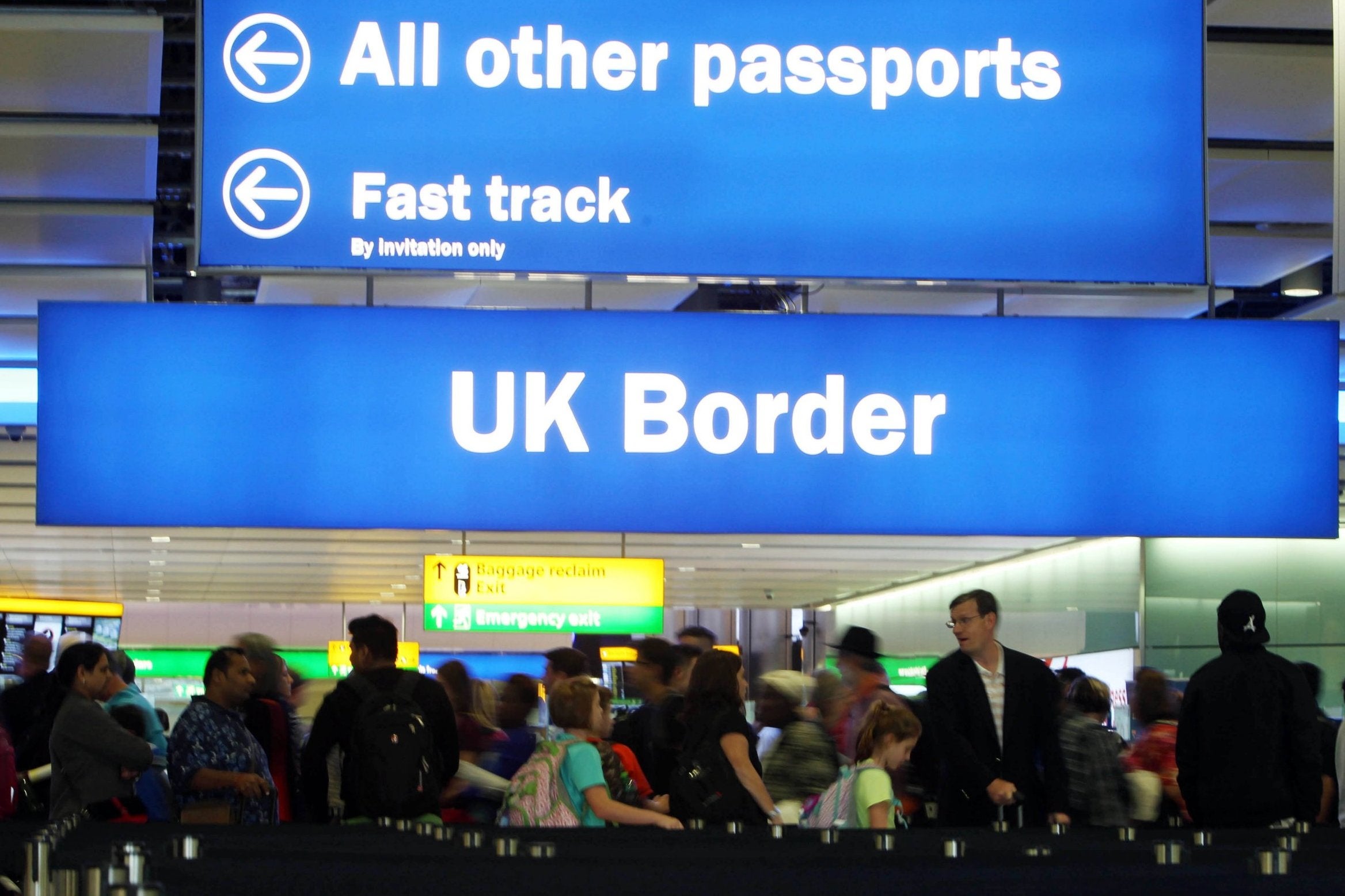Brexit: More EU citizens still arriving in UK than leaving but immigration at lowest level since 2013
Exodus as UK becomes 'less attractive'

More EU citizens are still arriving in Britain than leaving in the wake of Brexit, new figures show.
But long-term immigration from Europe dropped to the lowest level for five years in 2018, while arrivals from outside the EU have been rising.
Last year saw the lowest inflow from the bloc since 2013, when it also stood at 201,000.
Around 127,000 EU citizens emigrated – giving a net figure of 74,000.
The Office for National Statistics (ONS) said patterns of migration to the UK for work had been changing since the 2016 Brexit referendum.
“Long-term immigration to the UK for work has fallen, mainly driven by the decline in EU arrivals,” said Jay Lindop, director of the Centre for International Migration.
“Despite this, 99,000 EU citizens still came to the UK long-term to work in 2018, a level similar to 2012.
“We are also seeing the number of skilled work visas for non-EU citizens increasing, although overall non-EU work-related immigration has remained broadly stable.
“Decisions to migrate are complex and a person’s decision to move to or from the UK will be influenced by a range of social and economic factors.”
Long-term net migration stood at 258,000 in the year to September, with the EU figure standing at 74,000 and non-EU at 232,000.
The only groups falling were British citizens, whose net migration stood at negative 48,000 after 125,000 left the UK.
Net migration from “EU8” countries, including Poland, Hungary, Lithuania, Slovankia and other central and eastern European nations that joined the EU in 2004, plummeted to negative 10,000.
The ONS said there were 3.6 million EU citizens living in the UK at the end of 2018, compared to 3.8 million the year before.
“The largest decrease was for Polish nationals, down 116,000,” the ONS said.
Brexit billboards: Campaigners remind MPs of past promises
Show all 15“However, both EU and non-EU citizens continue to add to the population, while more British citizens leave long-term than return.”
There was a “statistically significant” rise in net migration from the Middle East and central Asia, rising from 18,000 in 2017 to 30,000 last year.
The latest figures prompted fresh calls for the Conservative Party to abandon a controversial objective of reducing net migration to the tens of thousands.
As prime minister Theresa May remained in favour of the target, but her successor as home secretary has refused to commit to a specific figure.
Sajid Javid, who is also tipped to run as the next leader of the Conservative Party, has said only that he aims to bring migration down to “sustainable levels”.
Sunder Katwala, director of think-tank British Future, said: “These will be Theresa May’s final immigration statistics as a prime minister and home secretary who placed the net migration target at the centre of the government’s immigration policy.
“But the net migration target was a promise to voters that could never be kept.”
Madeleine Sumption, director of the Migration Observatory at the University of Oxford, said: ”It’s clear that the UK has become less attractive for EU citizens over the past few years, whether because of the lower value of the pound or the uncertainty around Brexit.
“But Brexit doesn’t seem to have put off non-EU migrants: the UK continues to be a top destination for international students and skilled workers from outside the EU.”
Marley Morris, a senior research fellow at the Institute for Public Policy Research, said: “As Ms May leaves Downing Street, the government’s target of bringing net migration down to the tens of thousands remains far out of reach.
“A new Conservative leader now has the opportunity to reset the UK’s immigration policy, ditch this self-defeating target, and consult again on its post-Brexit immigration white paper.”
Diane Abbott, Labour’s shadow home secretary, said the statistics “show the futility of the Tories’ net migration target”.
“Their devotion to the ‘hostile environment’ policy and the Windrush scandal shows they have become an anti-immigrant party themselves,” she added. “As Ms May goes, she should take these rotten policies with her. But there is no indication her likely successor will be any better.”
Caroline Nokes, the immigration minister, said: “These figures show that the UK is continuing to attract skilled workers like doctors and nurses who play a vital role in supporting our communities and boosting our economy.
“Net migration continues to be stable and as we leave the EU our new immigration system will give us greater control over who comes here, while ensuring employers have the access to the skills they need.”
Subscribe to Independent Premium to bookmark this article
Want to bookmark your favourite articles and stories to read or reference later? Start your Independent Premium subscription today.




Join our commenting forum
Join thought-provoking conversations, follow other Independent readers and see their replies
Comments